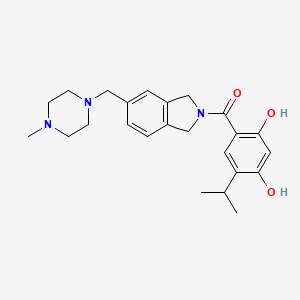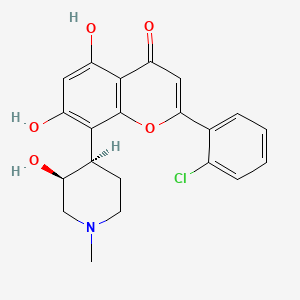
The targeted therapy onalespib has shown effectiveness in preclinical
studies of glioblastoma by researchers at The Ohio State University
Comprehensive Cancer Center – Arthur G. James Cancer Hospital and
Richard J. Solove Research Institute.
Onalespib is designed to inhibit a molecule called HSP90. The
molecule helps newly made protein molecules fold into their final
functional form. A large number of receptor and DNA-damage-response
proteins require HSP90 to achieve their functional conformation. In
cancer cells, HSP90 can be expressed up to 10 times higher than in
normal cells.
This study showed that onalespib blocked HSP90 activity and thereby
reduced the expression of cell-survival proteins such as AKT and
endothelial growth factor receptor in several glioma cell lines and in
glioma stem cells obtained from patient tumors. This, in turn, reduced
the survival, proliferation, invasion and migration of the cells.
In animal models of glioblastoma (GBM), the agent crossed the
blood-brain barrier, and showed effectiveness as a single agent, and
then greater effectiveness in combination with temozolomide, improving
survival in both cases.
The findings are published in the journal Clinical Cancer Research.
"Our studies show that onalespib can efficiently breach the
blood-brain barrier and reach tumor cells better than other HSP90
inhibitors," says principal investigator Vinay Puduvalli, MD, professor
and director of the Division of Neuro-Oncology at Ohio State and a
clinician-researcher at the OSUCCC – James.
"By inhibiting HSP90, onalespib disrupts several key signaling
pathways that drive the proliferation, metastasis and survival of glioblastoma cells.
These findings suggest that this agent, in combination with
chemotherapeutic temozolomide, could be an exciting new therapy for GBM.
Based on the results of this study, we have generated a clinical trial
that will determine whether onalespib in combination with standard
therapy is safe and effective in patients with newly diagnosed
glioblastoma," he says.
Glioblastoma is the most common and deadly form of brain cancer. More
than 12,000 new cases are expected to be diagnosed in 2017, with
overall survival averaging 16-18 months. The disease remains incurable,
largely because GBM is difficult to remove surgically, because the
blood-brain barrier prevents most chemotherapy from reaching these
tumors and because these tumors tend to be radiation resistant.
The study's key findings include:
- Onalespib levels were higher in brain tissue compared with plasma after intravenous administration in a mouse model, showing that the agent can cross the blood-brain barrier.
- Tumor cells derived from patients and implanted into a mouse model showed that onalespib plus temozolomide significantly survival compared with mice treated with a neutral agent or either agent alone.
Ref : https://medicalxpress.com/journals/clinical-cancer-research/

